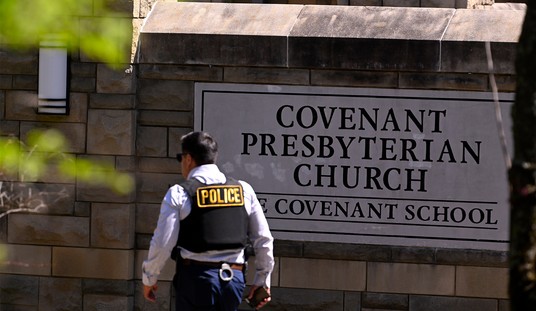If we knew about a $500 billion drain on the American economy that inflates prices for everyday consumers, slows down much needed technological innovation, and locks real victims out of our civil justice system, wouldn’t we all demand something be done about it?
This is the current state of our liability lawfare system today, known as tort law in the United States. It’s a disaster area, and for some reason, we’ve convinced ourselves as Americans we have to live this way.
The quantified “tort tax,” estimated by the US Chamber of Commerce to be $529 billion a year – roughly 2 percent of our GDP – is financially on par with entire industries that employ our neighbors and drive economic growth nationwide. In other words, this drain on value creation is as large as some of the most productive companies in the world.
Because of this fact, financial resources and productive assets are hoovered up en masse by firms, rightly anticipating the inevitable liability claims they’ll have to swat away every year like flies at a cookout.
Did you know that standard pots and pans in restaurants across America face endless legal attacks?
Though the FDA has disproved the evidenceless panic around nonstick cookware coated in per- and polyfluoroalkyl substances (PFAS), it has not stopped a cottage industry of lawyers from filing claims coast to coast, each hoping to snag large settlements doled out by uninformed jurors.
By misrepresenting risk and linking criminally negligent pollution cases to ordinary cookware (think of Mark Ruffalo’s film Dark Water), legal firms have succeeded in bringing 24 class action lawsuits to court against kitchen manufacturers whose products have not been found anywhere to present a risk to human health.
Recommended
States have made matters worse by issuing bans and restrictions on these products based on junk science, conflating consumer product risk with other types of exposure. The end result is misinformed consumers and kitchen supply companies pouring their revenue into legal instead of product development. Not to mention the higher cost for consumers on those products. Someone has to pay for the legal costs.
What has made this problem grow beyond a fringe set of cases is the introduction of major financial players into the courtrooms, thanks to shadowy third-party litigation funding meant to antagonize large firms. Frivolous lawsuits have never been more affordable, and the profits are higher than ever if you’re willing to wager on a good outcome.
This is a principal reason California Congressman Darrell Issa reintroduced a bill on third-party litigation funding disclosures in federal courts, aimed at forcing transparency over who stands to gain from particular judgments in court.
This will be at least one helpful measure to reduce the toll of the tort tax we’re all paying.
In 2023 alone, multi-district litigations (MDLs) made up 71.3 percent of the federal civil caseload, up from 38 percent just a decade ago. These cases bundle up thousands of claims and alleged victims, making it nearly impossible to verify the legitimacy of individual claims and placing extraordinary pressure on defendants.
Firms can’t verify the claims of the many plaintiffs or know if a competitor is bankrolling their legal costs as a strategy to gain market share. This can’t continue.
What can be done to allow those who are legitimately harmed to access courts while ensuring liability law isn’t being casually abused?
For one, Americans must demand a higher standard of scientific evidence brought up in a trial. Evidentiary rules must be adjusted to meet a rigorous burden of proof.
Second, there should be reasonable caps on punitive damages that can be awarded. Financial projections in settlements or verdicts that take into consideration non-economic damages that are entirely subjective should be viewed with ultimate skepticism.
Last, the multi-district litigation system needs to be reined in. It allows entirely separate cases with varying degrees of merit to be hastily glued together in pursuit of maximum reward. This status quo rewards trial lawyers for manipulating the process to extract payouts, drag out cases, and forgo reasonable settlements for their clients.
Meanwhile, legitimate claimants wait for years without the compensation they deserve, or are left unable to get any meaningful justice because courts are at maximum capacity with other civil cases, as a recent report of the Judicial Conference of the United States makes clear.
We as consumers and citizens deserve a system that prioritizes fair compensation for legitimate harm, simple as that. We need a system that upholds and encourages innovation and investment, rather than indirectly making life more expensive for consumers and the firms they rely on.
Florida, Texas, and Georgia have already provided a model for how tweaks to liability law can increase competition in key sectors and reduce consumer costs. Now Congress needs to get in the game and plug this massive drain on the American economy — for good.
Yaël Ossowski is the deputy director of the Consumer Choice Center.

























Join the conversation as a VIP Member